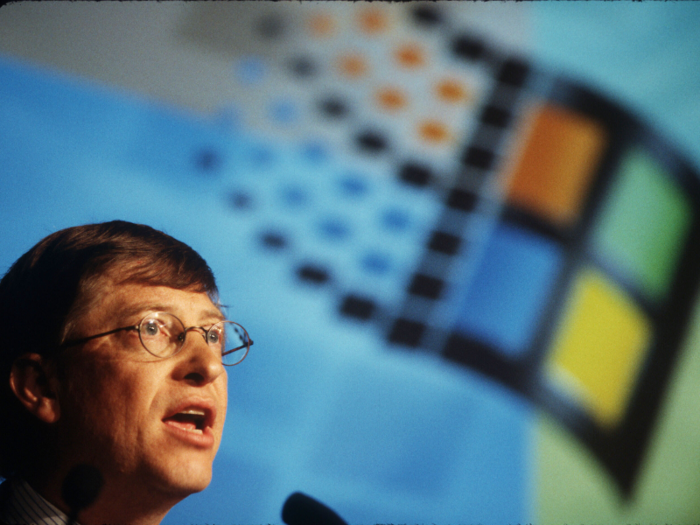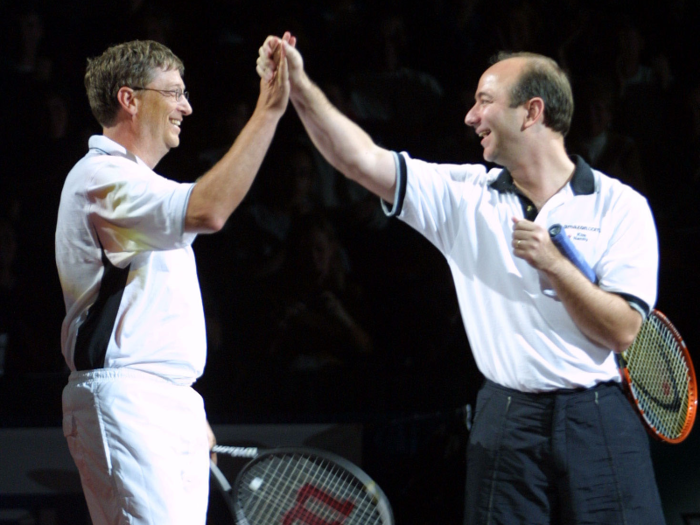When discussing antitrust law, Gates is speaking from experience.
In May 1998, the Department of Justice filed a lawsuit against Microsoft for monopolizing nearly every arena of computers: hardware, software, and finally, the internet.
Microsoft was late in the game when it introduced its internet browser, Internet Explorer, in 1995. By then browser company Netscape had already gained traction. To make sure Internet Explorer was the most-used of the two, Microsoft bundled it in with Windows, so over 90% of computer users would have have it has a default. In a recent look back at the antitrust case, Verge writer Adi Robertson described the practice as "Microsoft controlling access to the web itself."
In the end, Microsoft was seen as a tech monopoly bent on crushing its competitors. It lost the case, and was sentenced to breaking itself up into smaller entities made up of its various divisions. The US Department of Justice dropped the ruling in 2001, so Microsoft never actually had to split up. But it did relax its barriers to third-party developers, opening the operating system up to competitors like Netscape, Mozilla Firefox, and eventually, Google Chrome.
Today, less than 3% of worldwide users surf the web on Internet Explorer.
Gates's present-day argument in defense of big tech companies — that they're merely being innovative, not monopolizing — is similar to Microsoft's defense back in 1998. Gates told Schatzker, however, that his views have changed in the last two decades.
"I was naive about this, but that was a long time ago, and I didn't realize that as Microsoft gets itself — that we'd come under scrutiny," Gates said. "And we went through our thing back in the 90s, and that's made us more thoughtful about this kind of activity."
Gates is a supporter of government regulation.
In a time when social media influences politics and likely divides people along ideological lines, Gates says tech companies shouldn't be relied on to solve the problems they had a hand in creating.
While Gates doesn't blame any specific social media companies for these issues, he does think the government should work with tech giants to solve them.
"I do think the government really needs to talk about what those rules should be," Gates said. "It's not, you could say, unbiased, but I see these as well-meaning, highly innovative companies, that it's up to society to make sure that their innovation doesn't have negative side effects."


